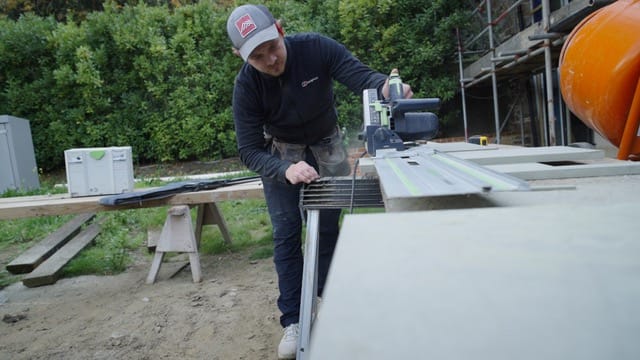The problem is well recognised, the statistics and data are all there, and the shortcomings of this last administration known. Now it is time to move to the next stage and start delivering solutions. It is not the message you may have heard, but already there are positive signs.
Anyone concerned for Guernsey’s future has housing on their minds.
Cost and availability came to dominate the dying embers of the last States, spark conversations and debates in cafes and pubs.
It is the issue, alongside taxation, that is central to the election campaign.
Next term there will be a dedicated Housing Committee tasked with driving forward solutions for an issue that is multi-faceted and intertwined.
Lack of suitable accommodation, whether that is down to price or size, impacts society in a range of ways, it can force young people to leave, means talented people do not arrive to fill key roles from offices to the health service.
Guernsey’s economy is stagnant, living standards stuck, and one of the reasons is the difficulty employers have in recruitment because of the housing situation.
This isn’t just about the engine room of finance, but it filters down to become a block to small and medium size businesses growing by attracting and retaining talent, and that prevents diversification.
It links to skills development too, as those working in construction retire and are not replaced we lose the capacity to build as much and as fast as we need.
The problem is well recognised, the statistics and data are all there, and the shortcomings of this last administration where it has control, like in planning restrictions and social housing development, already laid bare.
Now it is time to move to the next stage and start delivering solutions. It is not the message you may have heard, but already there are positive signs.
A united voice for change

Ahead of the election, Guernsey’s business and third sector organisations got together to form the G8, united in a collective call for change.
The Chamber of Commerce, Guernsey International Business Association, the Hospitality Association, the Construction Forum, Institute of Directors, the Guernsey Retail Group, Association of Guernsey Charities, Confederation of Guernsey Industry are a powerful coalition, collectively representing 1,000 companies and 20,000 employees.
Their research led to the Voice of Guernsey Business Insight Report with priority areas for the net administration to address.
“I think collectively, there's broad agreement that Guernsey is very much at a crossroads, a pivotal moment,” said IoD Guernsey chair Glen Tonks.
“We cannot ignore the challenges anymore. Our economic growth has been a nominal 1% since 2019 and our productivity has only improved 2% in the last 15 years. Productivity is the main determinant of living standards and long term economic growth. Put simply this means that Guernsey's living standards have barely changed in 15 years.
"The challenge is just not economic stagnation. Our population is aging, which puts pressure on health care, housing affordability challenges, skills shortages, investment in infrastructure. But there is hope. Guernsey's business community is offering real solutions.”
A step change has already happened
The Construction Forum exists to be a bridge between the industry and government. If you want to know why housing developments have stalled, they will likely have the answer.
Its chairman John Bampkin gives credit to the States in that in the last year it has been listening.
“We saw a step change, certainly from the DPA, probably about this time last year, really, where they wanted to get a lot more into the detail and work a lot closer with industry and developers across the island,” he said.

“We had a series of meetings. We looked at site by site issues around any planning and any sites that weren't going forward.”
Things were looked at from both sides, planners asking why building was not happening when permission was in place, the industry identifying sites that could come forward if a route could be found through the planning process.
Hours and hours of work went into it.
“Things were moved and changed on both sides to make these sites much more viable. We're starting to see some of those come through now. That was a great demonstration of people just getting around a table and getting right into the detail and a bit of give and take from both sides to get these things moving forward.”
Then there was a pause of the demands from a policy known as GP11.
This had mirrored an initiative in the UK to force a position of major developments to be for affordable or social housing.
The States moved to nullify it after it produced exactly zero homes, but blocked many more from actually going up.
“The problem was because economies of scale don't work that well in Guernsey compared to the UK, it was making a lot of these sites untenable from a financial perspective.
“We've suspended that for five years last August. There's been quite a few questions as to why nothing happened yet?
"Well, just to reactivate these sites and get them back through planning in a different way, and all that sort of stuff takes time. I know that some of those sites are starting to come through now. I've spoken to two developers over the last two or three weeks that are going to build twice as many houses from now as they built in the last 12 months. So that's much more encouraging as well. So that was the States listening.”
That is not a message you hear clearly, or often.
But there is more to be done.
And a balance to be struck.
“I think if you look at why a lot of the houses haven't been built previously, a lot of it has been playing constraints through one reason or another.
“We all live in Guernsey for a reason. It's a beautiful place, and we have to be very careful what we build and where, and I just think there's been a lack of imagination.
"It's probably a little bit more about changing some of the rigid structures we've got in place and making it a little bit more attractive for developers to build the sort of houses that we need, because at the end of the day, there's huge demand on those big £4m, £5m, £6m, multi million pound houses. You can't blame a private company for being very attracted to that.
"Sometimes building social housing and affordable housing on mass, the risk is just the same, but the return rewards are not as good. Do we look at tax incentives? Do we look at different ways of doing things? So I think it's been more creative, more imaginative about understanding the reasons why we haven't built houses the way we should have done.”
There were 142 homes built last year, 168 the year before, but with net migration running at 350 people a year, all the time the island is falling behind.
We’ve seen a skills and jobs drain, but there are green shoots of hope
Housing has long been one of the Guernsey International Business Associations priorities.
It wants to be part of the solution.
Part of that is relaying to government how it was impacting the finance sector.
“We know this isn't just the finance sector issue. We started to hear examples of our youth that were leaving because they couldn't find anywhere affordable to live, people that had been skilled and trained here, and then their housing priorities have changed. They wanted to move out of home or whatever, and they were leaving,” said GIBA chair Jo Peacegood.
“People that had left Guernsey for a while and wanted to come back with the skills they built elsewhere, and they couldn't come back and get on the housing market.
"And honestly, it was quite depressing to be honest, because even though I was at the root of collating that information, I really didn't understand what an impact it was having.
“And then when we do recruit off Island, we heard quite a lot of examples, where businesses had found a really good, skilled candidate who would be great for the island and help our economy, and they'd gone through all of the interview processes, had everything signed off, and then they couldn't find anywhere to live.
"And more importantly, what were they doing with that role? They were then put in our competitive jurisdiction, so we were giving tax take to our competitors.”
GIBA has now been at the table with the States and the Housing Forum alongside industry representatives from the likes of construction, real estate and architects, helping drive the conversation.
“We're starting to see some real positive things happening, where the future looks brighter than it did previously, but we do need to keep the pressure on.
“We're starting to see some real positive things happening, where the future looks brighter than it did previously, but we do need to keep the pressure on. I think that the key points are understanding the issue and understanding how we could help. But most important is the collaboration of all the sectors coming together, with deputies, with civil servants, and just talking about these issues and how we can hopefully work to solve them.”
The Guernsey Chamber of Commerce’s membership is dominated by small and medium sized businesses.
People leaving these businesses because they cannot afford to live on the island has an impact that goes beyond public finances and tax take.
“What does it mean for that business that has big growth ambitions and innovation ambitions? They get put on the back burner while you do business as usual and recruit again, it's really hard. It hurts in a different kind of way,” said Brooke Kenyon, Chamber vice president and managing director of Orchard PR.
Of all the issues identified by the G8, it always keeps coming back to housing.
“We want to keep talent on island. It's so frustrating when someone comes to you and says, ‘I want to stay in your business. I think what you're doing is brilliant, but I can't live here. I don't want to live at home with mum and dad anymore. I've been doing that for five years. I thought it would get better. I can't get out of it.’ And we don't have a solution for that.”
Business are also changing their models.
That person may remain with them, but work from the UK, which has other consequences to society.
A call for investment in apprenticeships

You can have all the right policies, investment, schemes and desires in place, but you need people to carry out the work.
Traditionally the island’s larger building companies have grown from smaller businesses and contractors, the vast majority of those involved starting out as an apprentice.
“If you think about that apprenticeship journey, they come in, they learn those skills, they go out, they hone those skills, become a professional tradesperson,” said Mr Bampton.
“They then maybe start their own business and go off on their own, and then they grow to a bigger business, employ people. The industry really is full of those examples. I think if we continue to carry the way we are, we're not getting enough apprentices coming through the system.”
Anybody who has tried to get building work done recently will appreciate that there are not enough tradespeople on the island.
That stymies choice and competition, it creates delay.
“We've got an aging housing stock, one of the oldest in Europe. We've got an aging infrastructure system as we know and one that needs a lot of work because there’s a lot of maintenance.
“If we lose those skills, we never get them back. If you look at the number of apprenticeships and the number of people in our industry, it has been on a massive decline in the last 10 years. So for me, there's a huge investment that's needed in those apprenticeship programs to bring skills into our industry.”
He wanted to see a focus on the last few years of school, saying it was shocking the number that came out unable to read and write properly or do basic maths.
“I know we have the careers programs, but I think we've got to get really into that detail and say, ‘What are these children suited for? What should their career be?’
“Are they going to be able to do the basics in terms of academia when they leave? Really try and use those last two or three years to help that and get them steering the path that we need. Yes, we need people qualified for all sorts of industries, I need finance directors, I need marketing people, I need those qualified people. But I also need the ones that are probably not so strong in academia, and hopefully give them a career with a path as well. But that needs real support from an investment the education system around those last few years.”
The G8 has set out what it thinks will help, an agenda it would like to see the next States take on and implement in six months:
- A Housing Delivery Champion to coordinate cross-committee dialogue and implementation and publicly report progress quarterly highlighting opportunities and threats to delivery
- Review the structure of the Development & Planning Authority and whether it should be changed to be formed purely of non-political members
- Deliver the Housing Plan without delay, publishing six-monthly updates on progress





Comments ()